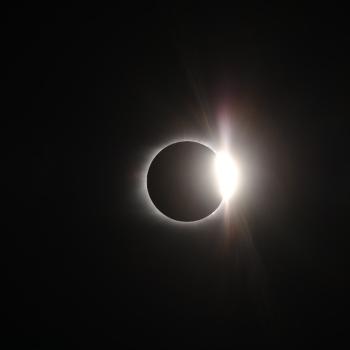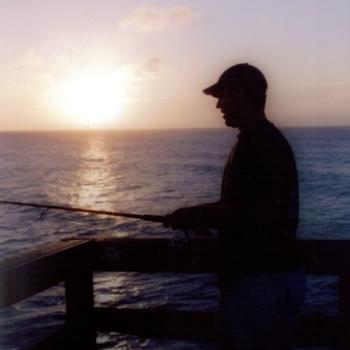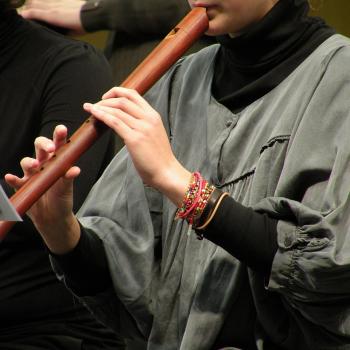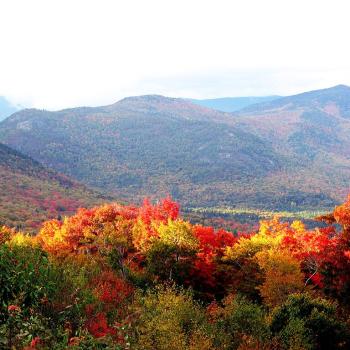Hello friends, and welcome to another year here at The Zen Pagan. Our friend and blogging neighbor Thorn Mooney reminded me that the New Year is a good time to reintroduce one’s self.
But the question I intend to address here — who am I? — has additional resonance in two other dimensions.
As I fall headlong towards my 50th birthday, self-assessment comes to the fore. What the hell have I done with this half-century? Have I wasted it?
And the question “Who are you?” (another angle on “Who am I?”) sits at the core of Zen Buddhism, since the Emperor of China supposedly asked that question of the mythological founder of Zen 1,500 years ago.
So who is this guy who posts here under the ridiculous moniker “The Zen Pagan”?
Author Bio
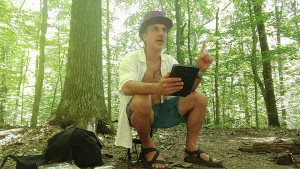 From the author bio perspective, I am the author of Why Buddha Touched the Earth (Megalithica Books, 2013) and What Does It Mean For The Gods To Exist? (Infamous Productions/Lulu, 2016) — so go buy my books. I’ve also been published in the collections Godless Paganism: Voices of Non-Theistic Pagans and Pagan Consent Culture: Building Communities of Empathy and Autonomy. And I’m a regular presenter at events like the Starwood Festival and the Free Spirit Gathering.
From the author bio perspective, I am the author of Why Buddha Touched the Earth (Megalithica Books, 2013) and What Does It Mean For The Gods To Exist? (Infamous Productions/Lulu, 2016) — so go buy my books. I’ve also been published in the collections Godless Paganism: Voices of Non-Theistic Pagans and Pagan Consent Culture: Building Communities of Empathy and Autonomy. And I’m a regular presenter at events like the Starwood Festival and the Free Spirit Gathering.
As this is a blog about religion, maybe some words about my religious upbringing are appropriate. I don’t think I’ve written about this here before, and it puts me next to someone famous for a very, very awful reason, so…
Childhood Catholicism — and a Brush With Evil
I grew up Catholic (I’m feeling much better now) in the Baltimore suburbs, in a neighborhood full of third and fourth generation Irish and Polish and Italian immigrant families. I think I was a teenager before I understood that Catholics were a minority in the US — most of the kids I knew growing up were Catholic, so I thought most people were.
But in my house it was a relaxed, universalist, New-Agey sort of Catholicism. Dad had Edgar Cayce books on the shelf and once put a small cardboard pyramid over the bed when “pyramid power” was a fad in the 1970s; Mom believed she my have lived a past life in Atlantis. (I am, to be clear, not sure of her current belief status on this question.)
Our church was built in 1970, and it seemed important to me that it and I shared the same year of birth. Our family priests were Father Leo, an unpretentious fan of the Baltimore Colts and Father Tim, “the hippie priest” to my mind, his hair a little long, and always ready with a blessing for the kids. I didn’t know it at the time, but for a Catholic Church ours was a remarkably plain building; I believe Father Leo directed church funds to the poor rather than to fancy fixtures. Perhaps the modernist decor helped shape my preference for a plain, Zen-like aesthetic in religion.
Father Leo and Father Tim were good men and I respected them — they were doing God’s work, I figured. I became an altar boy and even thought I might become a priest someday. (Which I suppose, in a sense, I have.)
Father Tim got transferred (I heard he eventually left the priesthood and got married), Father Leo passed away, and the Church assigned Father Joseph Maskell to our church.
That name may be familiar to you. Years later he was revealed as a sexual predator and accused of involvement in the murder of Sister Catherine Ann Cesnik, as documented in the 2017 Netflix documentary The Keepers.
I was still an altar boy when Father Maskell was our priest. I was even alone with him in the rectory when my parents sent me to him, in his capacity as a school counselor, for an IQ test. (I was identified as a “gifted” kid, which was a new idea at the time and no one really knew what to do with me…a tangential rant for another time.)
While most of his (alleged) victims were women, there is at least one allegation that he molested an altar boy.
It was the closest I’ve ever been to pure concentrated evil, all unknowing.
He also was transferred (and thinking about it now, who knows but that may have saved me from becoming one of his victims). I don’t remember much about the priest who followed him, but it was around then that I started training for Confirmation, realized that I could not in good conscience promise eternal allegiance to the Church while I still had many questions about religion, and drifted away from the Church.
Finding Paganism, Zen, Etc.
Over the next few years, in high school and college, I went from a vague sort of nondenominational theism, to agnosticism, to atheism, to discovering Paganism when a roommate told me he was having friends over to our apartment for what he called “a sort of roll your own religion, I think you’d be into it.” That little group set the tone for my Paganism: eclectic and unconstrained, stealing freely from all sources, totally DIY.
That eventually led me to the Free Spirit Gathering and the Starwood Festival, where I met various Big Name Pagans and became a festival staffer and then a presenter. I even, for my sins, spent a term as President of the Free Spirit Alliance, the non-profit behind FSG.
For many years I’ve described my spiritual path as “Zen Pagan Taoist Atheist Discordian”, sometimes adding “Transcendentalist” to that. It usually baffles questioners enough to leave me alone.
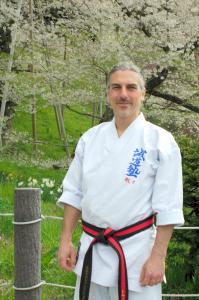 The “Zen” part of that is rooted in my studies of the martial arts. I hold a sixth degree black belt (kari rokudan) and the title of Associate Master (Jun Shihan) in a Japanese style of karate. My martial arts practice has also been an influence on my magical practice.
The “Zen” part of that is rooted in my studies of the martial arts. I hold a sixth degree black belt (kari rokudan) and the title of Associate Master (Jun Shihan) in a Japanese style of karate. My martial arts practice has also been an influence on my magical practice.
In fact, the term “Zen Paganism” came up early in my karate training around 1986 or so, when a friend and I were reading all the books on Zen we could find (this was the 1980s, long before Google or blogs) and got talking about how Zen emerged from Buddhism, but wasn’t necessarily reliant on it.
Decades later I found out that John Lennon had used that term himself shortly before he died — and he had been doing his homework, reading Drawing Down The Moon and listening to Alan Watts lectures on tape.
Another big influence has been my study of the healing arts; I am a nationally certified practitioner of Asian Bodywork Therapy, and a licensed massage therapist. Studies of Chinese Medicine have given me a few inklings about Taoism.
I’m also an poet and musician (occasionally even getting paid for it); the bardic ways are not unknown to me. That brought me to the works of the Transcendentalists, to Emerson and Thoreau and Whitman’s ideas about poetry, nature, and the Cosmos.
Finally, I’m a professional computer geek, with an MS in Computer Science from the University of Maryland. That’s still what pays most of the bills. (Resume available! Open to consulting!) The predilection of STEM folks for Pagan paths — especially the popularity of Discordianism in hacker culture — is a topic worthy of further exploration, perhaps we’ll get to that later this year. But my interest in science (I also studied a lot of physics in college, originally planning a double degree program) is certainly a root of the atheist part of my Pagan Atheism.
Self Examination
Now, all that self-promotional stuff above is factually true. Maybe it even makes me sound like a contender for Most Interesting Man In The World. Martial arts master! Hacker! Healer! Author and lecturer and scholar! Poet and singer-songwriter! Pagan community leader and accomplished ritualist! A man who has traveled the world, hiked sacred mountains, saved lives, loved and been loved by beautiful women.
Surely this guy is satisfied with his privileged and amazing life.
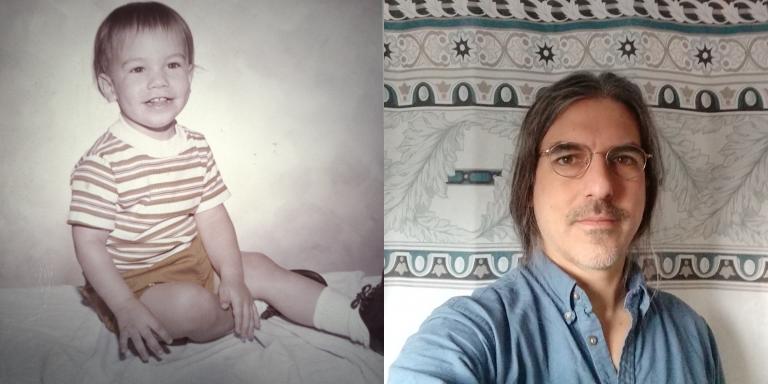 But as I speed towards the landmark age of fifty and pause for some reflection, I’m not sure.
But as I speed towards the landmark age of fifty and pause for some reflection, I’m not sure.
If you’ve dropped by this blog before, you might know that the past few years have not been kind, with my father’s death following hard on the heels of my mother’s near death. (And the sudden death, right in front of me, of my dog in the middle of it.)
I feel like I’ve just climbed out of a hole, only to suddenly have this big birthday smack me in the head.
If you asked me a decade ago, I would have thought I would be further along in my life now on several fronts. That I’d have some of my fiction published; that I’d be making more of my living from my side gigs in bodywork, massage, martial arts, and writing; that I’d have more money tucked away, more of the mortgage paid down.
And, to be frank, when I looked forward from a decade or two back to this age, I figured I’d be living my life with someone. Maybe even be a father. I didn’t think it would be this lonely.
Fifty is a big landmark, a natural age to think about and picture oneself at. And now that I’ve almost gotten there, in some ways it doesn’t match what I dreamed about.
The Metaphysical Zen Perspective
So the question is, which story am I going to tell myself? The Most Interesting Man In The World contender, or the lonesome loser? Which is the answer to “Who am I?”?
Or is perhaps neither the answer?
About 2,500 years ago, the Buddha taught a philosophy based on the idea that our suffering is rooted in the way that we mistake this for a meaningful question. We presume that there is an “I”, a “self”, behind it. But the Buddha taught a doctrine of “no self”, “anatman” in Sanskrit. (Or “annata” in Pali.) There is not a separate, in-dividual self; only a shifting aggregate of conditions.
About 1,500 years ago, according to the legendary history of Zen Buddhism, a Buddhist teacher called Bodhidharma came to China from India (or maybe Persia). He had an interview with the Emperor of China, which didn’t go very well when Bodhidharma told the Emperor that his understanding of Buddhism was all wrong. The Emperor asked Bodhidharma “Who are you?”, which I’ve always read as “Who the hell are you, dirtbag monk, to talk that way to me, the Emperor?”
Bodhidharma’s answer has been cited by some Zen teachers as the very heart of the philosophy: “I don’t know.”
To latch on to any of these constructions of “me” as being real — to “know” who “I” am — is to miss the mark. Yes, conventionally there is this bipedal primate, named after one of his father’s best friends, descendant (as best he can figure) of pirates and kings and warriors and healers, kind of awkward and clumsy yet with some accomplishments, generally satisfied but feeling a little lonesome, indulging in a little self-pity as he faces a birthday. And without that convention it’s hard to get things done. When I go to the DMV this week to renew my license and they ask who I am, a cosmic answer is not useful.
But it’s also true that this little section of the dance of atoms is not separable from the rest of the dance, that I am All, that Clear Light of the Void shines through the cracks in the walls we try to set up between This and That. That any story I tell about who I am is merely a story, this “I” only a character in it.
So what should I think about what’s happened to “me” over the years and about what’s to come, knowing that there is not really a “me”?
In the end, I suppose it was best said by that old Zen Pagan John Lennon (even if he was quoting cartoonist Allen Saunders): “Life is what happens to you when you’re busy making other plans.”








